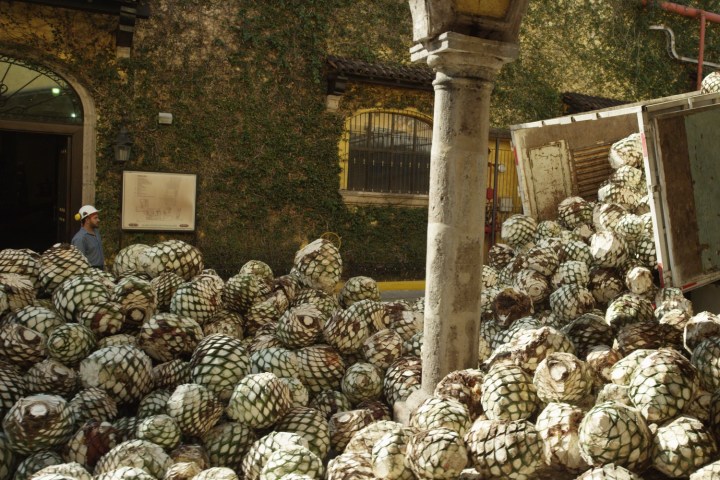
Ford believes the bioplastic could reduce vehicle weight, helping to improve fuel economy. Since conventional plastics are made from petroleum products, the agave-based plastic also reduces a car’s overall carbon footprint and cuts oil consumption. Ford and Jose Cuervo are testing the bioplastic for components like wiring harnesses, HVAC units, and storage bins.
The tequila-making process leaves plenty of extra material for potential plastic parts. Each plant takes a minimum of seven years to mature. Jose Cuervo extracts juices from the “heart” for distillation into tequila. The rest is used for compost, or made into crafts and agave paper by local artisans living near the company’s Mexican farms.
Read more: Ford invests in autonomous vehicle mapping
Citing the United Nations Environment Programme, Ford said 5 billion metric tons (5.5 billion tons) of agricultural biomass waste is produced every year. At the same time, the company claims there are about 400 pounds of plastic in a typical car. That creates a large opportunity to turn plant waste into car parts, and boost Ford’s green credibility in the process.
This isn’t the first time Ford has turned to plant-based alternatives for conventional materials. It already uses soy-based foam, castor oil, wheat straw, kenaf fiber, cellulose, wood, coconut fiber, and rice hulls in its cars. The carmaker also previously experimented with the same PET plastic used in Coca-Cola’s “PlantBottle” for certain car parts.
As cars get more efficient, more attention will have to be paid to the environmental costs of the materials used to make them. Decreases in fuel consumption will make manufacturing-related emissions a greater part of a car’s overall carbon footprint. Cutting those emissions may be achievable, though, if car companies are willing to get creative.
Editors' Recommendations
- Here’s how Ford will give EV customers Tesla Supercharger access
- Goliath car screens have arrived, and Ford’s new software takes full advantage
- Ford Mustang Mach-E Rally kicks up some dirt
- With EV Live, GM lets you chat up EV experts away from obnoxious dealers
- Ford recalls more than half a million SUVs over fire risk


